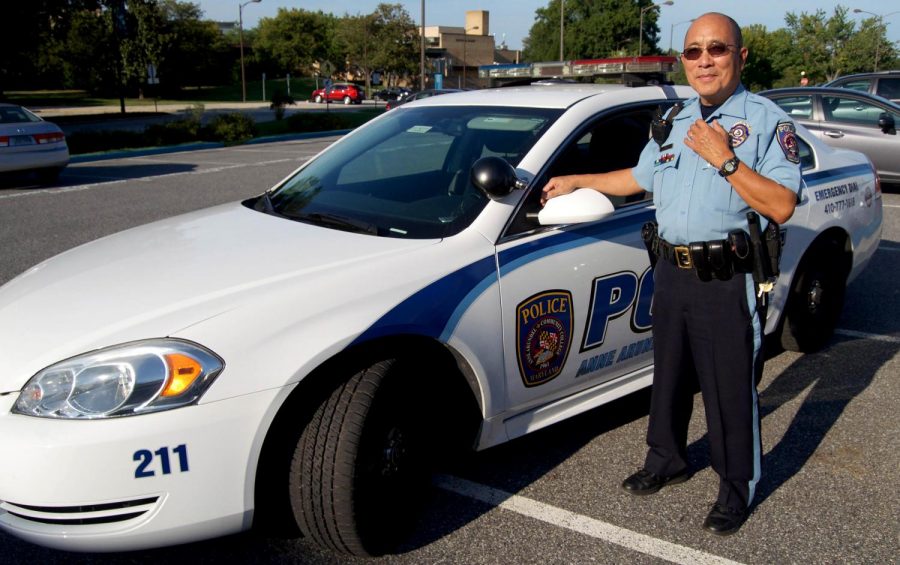Campus police officer recalls life in Vietnam
September 29, 2017
When he heard the news that the war was ending in Vietnam on April 6, 1975, Dung Do didn’t celebrate, cry tears of joy or rejoice that the soldiers were finally returning home.
The first thing he did was remember a solemn promise he had made to his fiancee, who was rooted in
South Vietnam with nine siblings as the North prepared to take control of the South.
He had promised Dzung Le, his fiancee, that when the war ended, he would find a way to bring her to Maryland, where he lives, and marry her.
But Vietnam was falling to the North, so he had to act quickly.
He flew to Saigon soon after, swearing to uphold the promise he had made to Le.
“[If I] tell you [I’ll] do something, I will do it,” Do said. “I may not be the fastest … but I will keep my word.”
Do, now a police officer at AACC, was born in Hanoi, North Vietnam, in 1950. But in 1954, he and his family fled to South Vietnam as the first seeds of communism began to spread in the North.
Do said his family moved into Saigon, the former capital of the South, and he continued his education
until 1967, when he decided not to finish high school.
Instead he joined the Army of the Republic of Vietnam, the South’s army. Do said he had chosen “the reverse” among his age group, because many other young South Vietnamese chose education over a conflicting war between communism and the republic.
Do said he ran away from his family at age 16, bought a fake birth certificate and enlisted. His family moved to the United States shortly after, leaving Do without any familial connections in the warring country.
“At the time, people tried to avoid the draft,” Do said. “[But] I decided that I wanted to serve my country first.”
Do said he fought in the infantry for four years, largely in Central Vietnam and the North at first. He added that he fought alongside the airborne and American Special Forces against the threat of communism.
Do was wounded twice. After he took a shot to his leg, he was medically discharged from the war.
His family was able to pull him out of the country in 1974 by getting a doctor in Baltimore to write a letter recommending he treat Do here.
But when the country fell a year later, Do took a plane back to Vietnam to keep his promise to his fiancee.
“They were very surprised to see me,” Do said. “No one expected me to come back.”
Using his green card, Do was able to escort Le and her nine siblings out on the last flight to leave the country before the airport closed.
Chi Scholl, Do’s sister-in-law, said she and everyone in the family is still “very thankful” for what he did.
“I couldn’t imagine a 25-year-old doing that now,” Scholl said. “That was a lot of responsibility. All of my siblings … see him as the figurehead of the family.”
Do and Le still live in Maryland. Since 2008, he has worked as a police officer at AACC.
Scholl said Do has “finally found a job he loves” at AACC.












